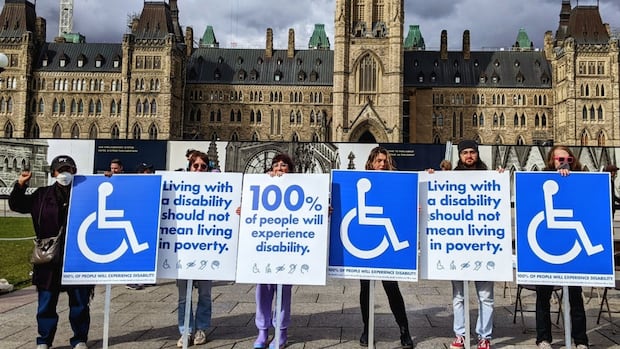
Ontario Federal Incapacity Advantages won’t go back
Amid growing concern with the disabled and their advocates, the province has announced that the Canada will not return the upcoming Canada Disability Benefits (CDB).
The CDB was passed in 2023, and the government called it a $ 6.1 billion in the federal budget of 2024. Starting from July, eligible recipients can get up to $ $ 2,400 per year, or a maximum of $ 200 per month.
One in News release on TuesdayThe province announced that it would exempt federal benefits as income. This means that recipients will not have their provincial social assistance payments or the rights such as Ontario Disability Assistance Program (ODSP).
Since the passage of CDB, advocates have feared provinces and regions that they may return the benefits. As a march, at least seven have promised not to do so, But Alberta has announced that it will return the benefit In some circumstances.
Ron Anich, co-chairman of the ODSP Action Alliance, said, “It was a great concern that it was not for those who were worth seeing this benefit.”
Advocates gave relief, but careful
Rabia Khedar, National Director of the Advocacy Group Disability Without Poverty (DWP), said the news of Alberta stopped fear and despair within the disability community.
But Khedar said that the Ontario government has taken the first “steps in the right direction”, including the decision to increase the ODSP exemption from $ 200 to $ 1,000, hoping that the province will do the right thing.
“I always felt firmly that, because they were committed to an earning exemption, that there is no way to justify bringing back the federal advantage of $ 200,” he said. “So I am glad that they have confirmed today.”

Advocates say they still have other concerns about the profit program.
To be eligible for CDB, recipient Disability should be approved for tax creditAnd for this they have to get certification from a medical businessman.
“Now what we are watching is scratching up to sign up for credit and credits,” Anich said. “Which is fine when there are doctors of family members, but there are two million people in this province who do not have family doctors who are unable to reach this benefit only.”
For Khedar, the answer is “Just red tape has been cut.”
“Those who are in the provincial system, who have already filled medical forms and have already verified for their disability, should not recover that kind of investigation process,” he said.
Instead, many disability advocates are asking the federal government to receive the recipients of the provincial programs such as ODSPs are automatically eligible for CDB.
On Tuesday, in an email to the CBC, a spokesman of Ontario’s children, a ministry of community and social services said it is also calling to change the Income Tax Act to align those eligibility requirements from the federal government.
The spokesperson wrote, “We believe that people who already use Ontario Disability Support Program and meet other eligibility criteria, should automatically qualify for CDB, require to pay $ 200 under the program.”
Anxiety
Despite the good news on the Clavback, Khedar and Anisich still consider CDB’s maximum monthly payment as insufficient of $ 200 and are calling for growth.
“Operians with disabled on ODSP and candidates who qualify for disability benefits will still be below the poverty line.” “And living with a disability costs at least 30 percent of the poverty line.”
Khedar said that recipients are in dire need of financial assistance and they will use it to improve their lives.
“This means that perhaps they can buy healthy food or supplements, they may buy over-the-counter painkillers to manage their day so that they can also consider searching for work and improving the quality of their life,” he said. “This is the money that will be spent on the requirements of daily life.”
Khedar and Anich are also calling for better cooperation between disabled people and their advocates, and when decisions affecting their lives are made, this is demanded to be said.
Khedar said, “There is nothing like a living experience – ‘nothing about us without us,” Khedar said. “If they put us on the table, we will make the policy so easy to get the policy for them.”